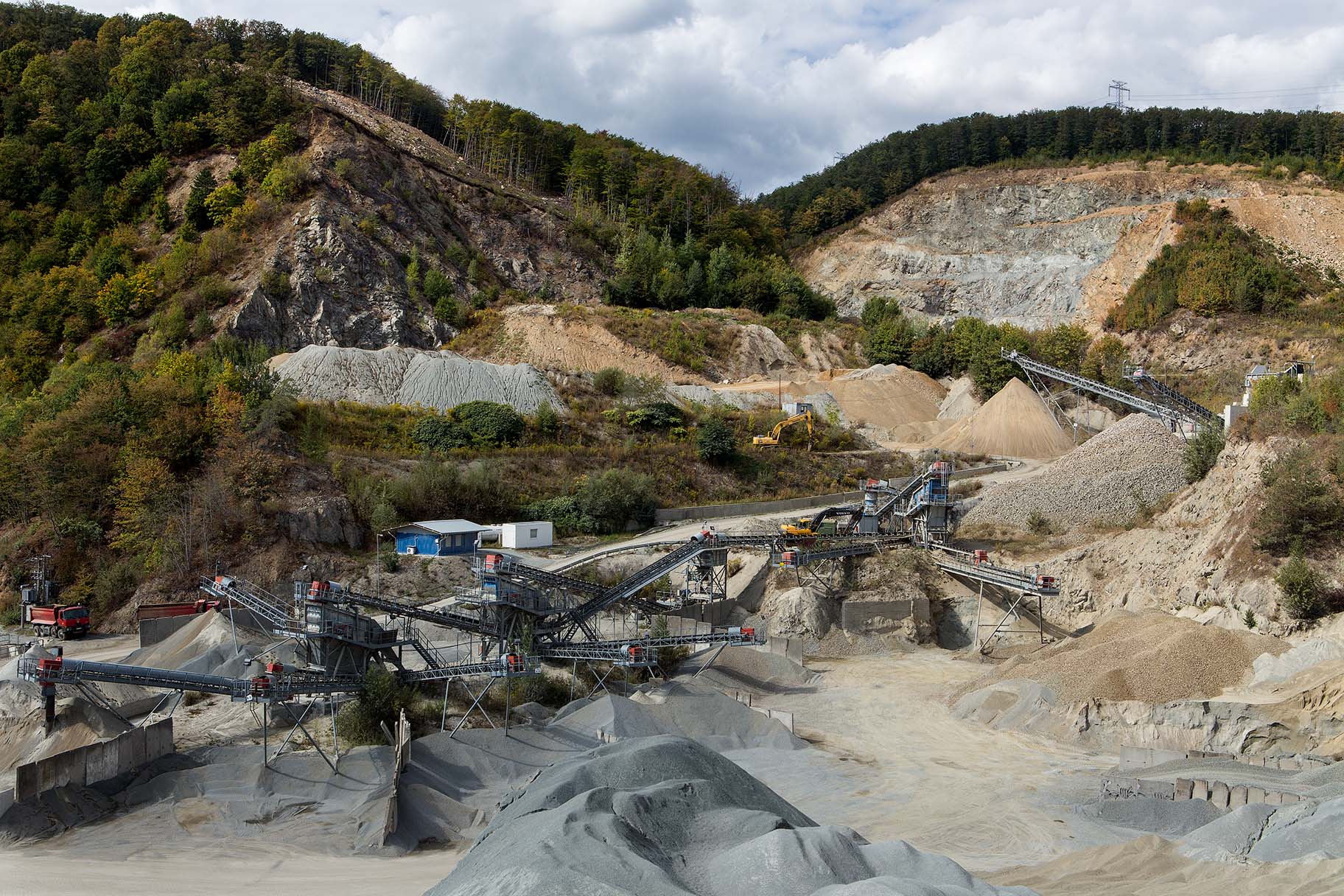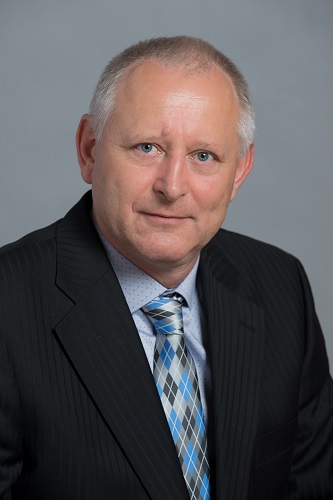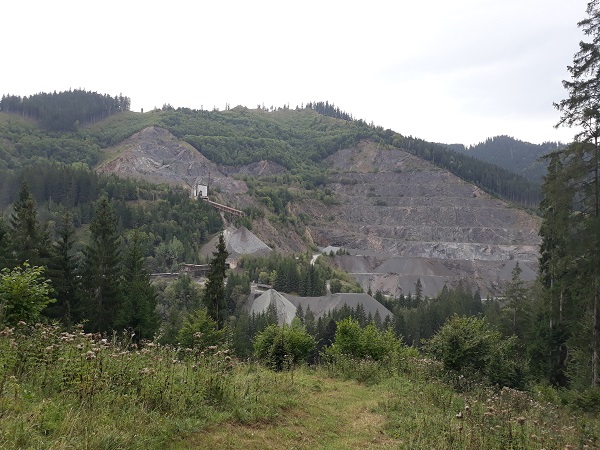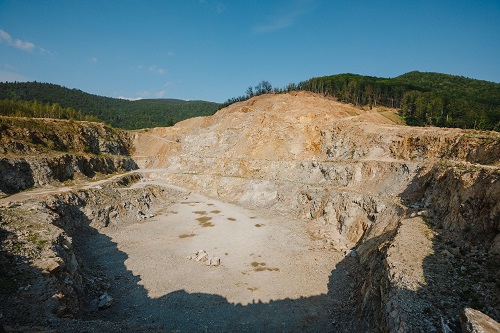
The Slovakian aggregates industry is confronting many challenges and has shown great resilience in recent years. Eugene Gerden learned more about the country’s aggregate marketplace by speaking to Ludovít Kováč, chairman of the Slovak Aggregates Producers Association.
Slovakia’s aggregates sector is more stable this year despite higher production costs impacting producers and their customers, largely attributable to European geopolitical disruption and uncertainty.

One of the European Union countries hit hardest by last year’s soaring energy prices due to the interruption of Russian gas supplies and the subsequent continent-wide energy crisis, the perilous state of Slovakia’s economy led to the country’s Prime Minister, Eduard Heger, calling for urgent support from Brussels.
High energy bills had a negative effect not only on Slovakia’s 5.5 million population but also on the country’s industrial sector, including the aggregate and other building materials market.
While a difficult situation has somewhat eased in recent months, most local analysts have forecast a tough 2023 for Slovakia’s aggregates sector and its leading players. The slow recovery of construction activities remains a major problem, with the biggest delays seen at major transport infrastructure construction sites.
Slovakia’s aggregates industry consists of more than 230 sites throughout the country. The pandemic led to a serious output decline and some producer bankruptcies. In 2020 the overall aggregate output of the country reached 25 million tonnes – 16-18% lower than in 2019. Crushed aggregates were the subcategory with the biggest output decline, mainly due to a significant slowdown of roadbuilding activities. While the situation in the industry improved in 2021, the start of the Russian military offensive neighbouring Ukraine put additional pressure on Slovakia and its aggregates sector.
Despite ongoing problems, there is cause for Slovakian aggregates industry optimism. The country’s 2022 aggregate output was 24.8 million tonnes, an increase of 3.8% compared to 24.4 million tonnes in 2021. The impetus for elevated Slovakian aggregates consumption is likely to come from road upgrades and a stepping up of widespread railway rebuilding works, says Ludovít Kováč, chairman of Slovak Aggregates Producers Association, in an exclusive interview with Aggregates Business International.
According to Kováč, traditionally, the bulk of the larger aggregate volume deliveries have been going to large transport infrastructure construction in the country, particularly roadbuilding. The list of the most important projects in this area includes the construction of the D1 Lietavská Lúčka – Dubná Skala, Hubová – Ivachnová highway; the D3 Žilina Brodno – Kysucké Nové Mesto highway; and the R2 Kriváň – Mýtna, Košice Šaca – Košické Oľšany route.
Kováč says a lot of aggregates have also been supplied for the modernisation of the Poprad – Lučivná railway route and the Žilina railway junction on the Slovak rail line.
Kováč highlights that ALAS Slovakia, one of Slovakia’s largest aggregates and gravel suppliers, has invested €2 million in new technology-based equipment for wagon loading at its Malacky district gravel pit site. Another major Slovakian aggregates supplier investing in more up-to-date production plant cited by Kováč is Carmeuse Slovakia. The company has spent €240,000 in upgrading its Trebejov quarry operation, while the firm has overhauled its crushers and replaced sorters in a €1.285 million upgrade at its Včelare Quarry. Kováč says other aggregates suppliers have also spent a fair amount of money on new crushing, sorting, loading and transport equipment.

Kováč says that improvements to aggregates supplier operations are continuing in 2023, with companies not put off by many analysts’ downbeat demand forecasts. Indeed, the start of new eye-catching infrastructure projects, such as the construction of the new Volvo car plant near Košice, offers the chance for new bulk orders.
While Kováč acknowledges that the recent European energy crisis has negatively impacted Slovakian aggregates supply firms through much higher costs, he thinks overly bureaucratic governance of the industry is another major but less discussed obstacle to achieving notable output growth. He states that this is reflected in the complex procedure aggregate suppliers need to follow to gain state approval for aggregates mining in the country, with frequent refusals by various Slovakian authorities.
The amount of Slovakian Government financial support of the aggregates industry also remains limited. Kováč says he has welcomed some Government compensation to aggregate suppliers for their increased electricity cost. The price of the power component of Slovakian electricity was set at €199/KWh, and the Slovak Republic’s Ministry of the Economy compensated for 80% of the difference between the limited price and the price at which the individual companies purchased the electricity. However, Kováč says it is a pity that this financial support lasted only two months, with all other costs related to the increase in energy still having to be covered by aggregates companies.

For the current year, Kováč and his Slovak Aggregates Producers Association colleagues do not expect a notable increase in the production and consumption of aggregates in Slovakia. In contrast, Kovac laments the depletion of the country’s raw materials base, as the reserves on individual deposits are running out.
The senior aggregates industry figure firmly believes there is an acute need for a radical change in Slovakian society’s attitude to raw materials extraction; only then will the nation’s aggregates industry resume its growth and development.













